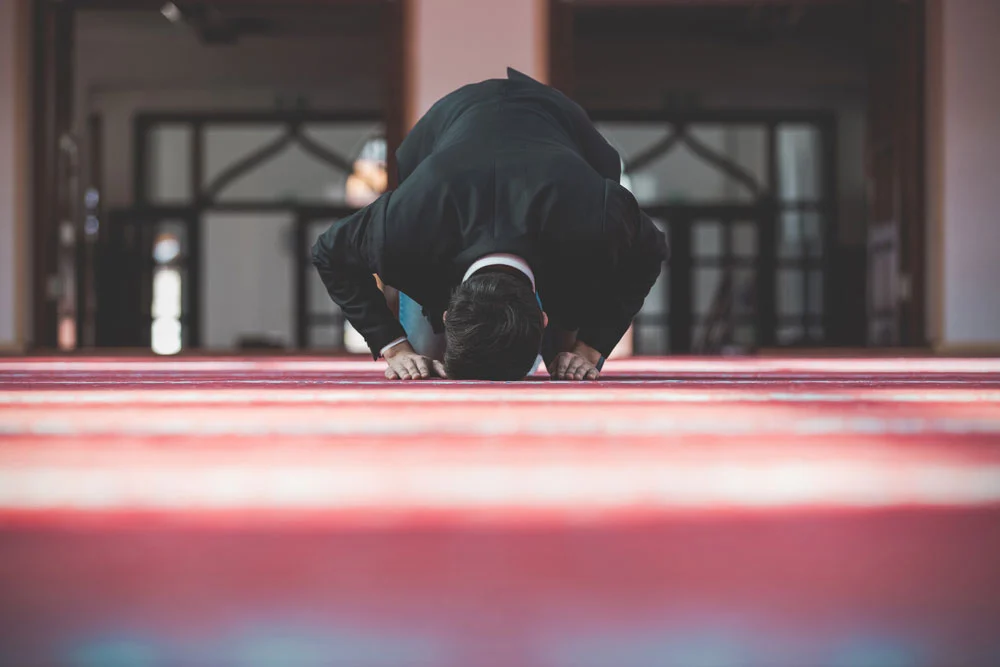Good news happens, and making supplications or duas for those happenings holds a profound significance in the life of a believer. It is a direct communication with Allah SWT, seeking His guidance, mercy, and blessings.
When blessed with good news, you can turn to duas for even more positivity. By expressing gratitude, guarding against the evil eye, cultivating humility, and strengthening your trust in Allah, you can enhance the joy and blessings that come with good news.
Here, we will explore some of the most effective duas when hearing good news, the significance of duas for good news, and how they can bring you closer to Allah and more goodness into your life.
Most Effective Duas For Good News
Muslim Life Partner?
Dua is a powerful tool that connects believers with Allah, seeking His wisdom, mercy, and blessings. No matter what your news is, you should make a dua to Allah. The following are some Duas you can make upon hearing good news:

Dua #1 For Hearing Good News
الْحَمْدُ لِلَّهِ مَاشَاء اللَّهُ تبارک اللهُ
Pronounce: Alhamdhulillahi Masha Allah Thabarak ‘Allah
Meaning: “All praise is to Allah, Just as Allah willed Blessed is Allah” [At-Tirmidhi 1:233, 2:103]
Dua #2 For Hearing Good News
الْحَمْدُ لِلهِ الَّذِي بِنِعْمَتِهِ تَتِمُّ الصَّالِحَاتُ
Pronounce: Al-ḥamdu lillaahil-ladhee bi ni‛matihi tatimmuṣ-ṣaaliḥaat
Meaning: “All Praise is for Allah by whose favor good works are accomplished.” [Ibn Majah – 3803]
Why Should We Make Dua Upon Hearing Good News in Islam?
When you hear good news in Islam, you should make dua to express gratitude (Shukr) and seek barakah (blessings) from Allah.

1. Expressing Gratitude (Shukr)
Expressing gratitude through dua upon hearing good news in Islam reinforces your awareness of Allah’s constant involvement in your life. When you receive good news, it’s a reminder that Allah always watches over you and showers you with blessings. Allah SWT says,
فَٱذْكُرُونِىٓ أَذْكُرْكُمْ وَٱشْكُرُوا۟ لِى وَلَا تَكْفُرُونِ ١٥٢ يَـٰٓأَيُّهَا ٱلَّذِينَ ءَامَنُوا۟ ٱسْتَعِينُوا۟ بِٱلصَّبْرِ وَٱلصَّلَوٰةِ ۚ إِنَّ ٱللَّهَ مَعَ ٱلصَّـٰبِرِينَ ١٥٣
Meaning: “Remember Me; I will remember you. And thank Me, and never be ungrateful. O believers! Seek comfort in patience and prayer. Allah is truly with those who are patient.” [Surah Al-Baqarah, Ayat: 152-153]
By making dua, you acknowledge Allah’s Kindness and Mercy and show gratitude for the blessings He bestowed upon you. This act of expressing gratitude, known as ‘Shukr’ in Islam, strengthens your faith and thanks to Allah. It helps you cultivate a positive mindset and a deeper appreciation for the blessings in your life.
2. Seeking Barakah (Blessings)
To ensure that the good news you receive is accompanied by enduring prosperity, seek Allah’s blessings by making dua upon hearing it. By supplicating to Allah, you acknowledge that He’s the ultimate source of success and that His blessings are necessary for long-term prosperity.
Allah SWT says,
إِنَّآ أَعْطَيْنَـٰكَ ٱلْكَوْثَرَ ١ فَصَلِّ لِرَبِّكَ وَٱنْحَرْ ٢ إِنَّ شَانِئَكَ هُوَ ٱلْأَبْتَرُ ٣
Meaning: “Indeed, We have granted you ˹O Prophet˺ abundant goodness. So pray and sacrifice to your Lord ˹alone˺. Only the one who hates you is truly cut off ˹from any goodness˺.” [Surah Al-Kawthar, Ayat: 1-3]
Making dua after receiving good news is a way to show gratitude to Allah and seek His continuous favor and guidance. It’s a reminder that true success and fulfillment come from Allah’s blessings, and by seeking His barakah, you invite His abundance into your life.
3. Guarding Against the Evil Eye (Nazar)
To protect yourself from the harmful consequences of the evil eye, you must make dua as soon as you hear good news in Islam. The evil eye, or Nazar, is a reality that Islam acknowledges, and seeking protection from it is a way to safeguard the positive developments in your life.
When we share good news, we may unintentionally invite envy and negative energies from others. By making dua, we seek Allah’s protection and ask Him to shield us from any harm that may come our way due to the evil eye.
This practice aligns with the prophetic tradition of seeking refuge in Allah from the harmful effects of the evil eye and malicious intentions. So, whenever you hear good news, remember to make dua and seek Allah’s protection.
4. Cultivating Humility (Tawadhu)
Cultivating humility through dua after hearing good news in Islam is essential for believers. It’s a way to remind ourselves that all achievements and positive events are ultimately in the control of Allah. This understanding helps us avoid arrogance and maintain a balanced perspective on success.
By making dua, we acknowledge our dependence on Allah and avoid the pitfalls of pride and self-centeredness. Humility is a virtue highly regarded in Islam, and it’s through dua that we can continuously cultivate this quality within ourselves.
5. Strengthening Trust in Allah (Tawakkul)
When you receive good news in Islam, it’s crucial to make dua to strengthen your trust in Allah (Tawakkul) and reinforce your belief in His wisdom and plan.
Making dua upon hearing good news serves as a reminder that Allah is the source of all blessings and controls every aspect of our lives. It’s an act of surrender and submission, acknowledging that Allah knows what’s best for us.
Experience the Power of Dua: Strengthen Your Connection With Allah
Making dua upon hearing good news is a multifaceted practice encompassing gratitude, seeking blessings, and protection from Allah. The reasons outlined above are not only compliant with Islamic Shariah but also contribute to fostering a close relationship with the Divine in all facets of one’s life.
Like a gentle breeze caressing your face on a warm summer day, dua uplifts your spirit and brings a sense of gratitude and peace. It’s a powerful tool that connects us to our faith and allows us to express our thanks to Allah. So, let your dua be like a sweet melody that resonates through your heart, filling it with joy and contentment.
Trust in the power of dua, for it holds the key to blessings and goodness in every aspect of our lives.
- What Is Nikah (Nikkah) In Islam? - June 12, 2024
- Walima Meaning | Everything You Need To Know - June 10, 2024
- Muzmatch Vs Salams | Differences You Should Know - June 5, 2024
